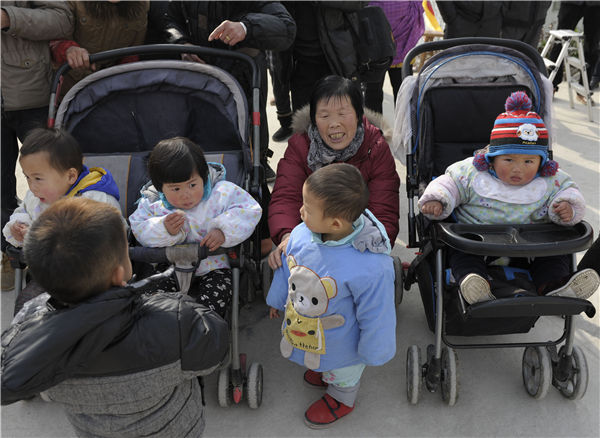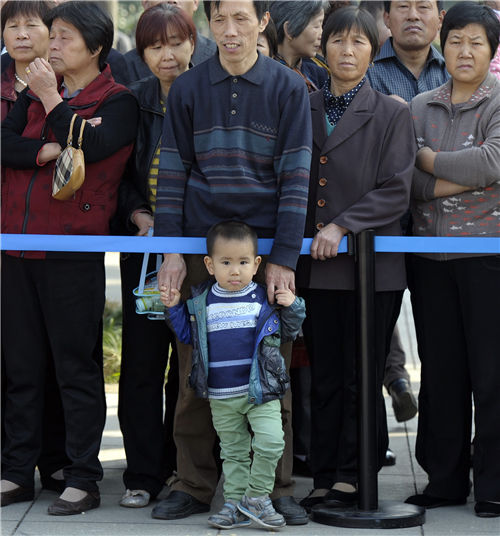Guarantee leaves many feeling shortchanged


Putting pressure on relationships even more is women's traditional role as what researchers call kin keepers who maintain the family social calendar, relationships and traditions. Complex family relationships interwoven with a second child makes it an aggravating issue with more young parents having reservations about having a second child.
At the initial stage of the introduction of the second-child policy in 2016 the number of domestic newborns rose to 17.86 million, the National Bureau of Statistics says. However, this momentum has not continued. The number of newborns in the country fell to 17.23 million in 2017. A clear downward trend was marked in the following years, with the growth rate of the population continuing to fall to the lowest population increase since the founding of the People's Republic of China in 1949, 10.5 per 1,000, with only 14.34 million newborns in 2019.
The government has adopted various policies and incentives aimed at increasing the birth rate and ensuring a more stable population composition including mandatory "cooling-off periods" for divorcing couples. Last May Henan provincial government revised the Regulations on Population and Family Planning with the first paragraph of Article 15 amended as: "A couple (including remarried couples) are encouraged to have two children".
Last year the Proposal on Adjusting Social Family Policy and Addressing Population Development Issues, put forward by the Central Committee of the Democratic League, explored the feasibility of a comprehensive fertility safety system that lasts from birth to the age of 18. In an interview with Xinhua, Huang Xihua, a representative of the National People's Congress, said the Ministry of Finance may consider the distribution of childbirth subsidies. From birth to the age of 6, the State would provide a certain amount in childcare subsidies every month in accordance with the local minimum wage.

However, even with stimulatory policies, more than half of working mothers say they do not want to have a second child, and 40 percent of working mothers are keen on giving birth but are unwilling to go through with the idea, especially in first-tier cities such as Beijing, Shanghai, Shenzhen and Guangzhou. Working mothers were more worried about having a second child and were under greater pressure, a survey on living conditions of working mothers by Zhaopin Recruitment found in 2019. Nearly 85 percent of responding mothers who said they dared not have a baby were mainly worried that the cost of raising a baby would be unaffordable.
Discrimination in the workplace toward potential child-bearing women is another important reason that stops women from giving birth. One such group consists of those who are married and have not given birth. With their opportunities for promotion they are likely to suffer invisible discrimination, and giving birth to a baby, not to mention a second one, will set them back financially and in their careers in terms of time.
Liu Qing, the former nurse, says she hopes time passes quickly, and soon, when the second child reaches primary-school age, she and her mother will both be leading far less stressful lives. However, Liu's mother, exhausted and lonely at times, says she has no regrets about talking her daughter into having the second baby.
"I always hoped to have a bigger family, and my daughter's generation have to bear the heavy burden of taking care of four seniors as the single child in the family. I think with the second-child policy the next generation will have a lighter burden in taking care of the elderly. That surely must be good for everyone."




































